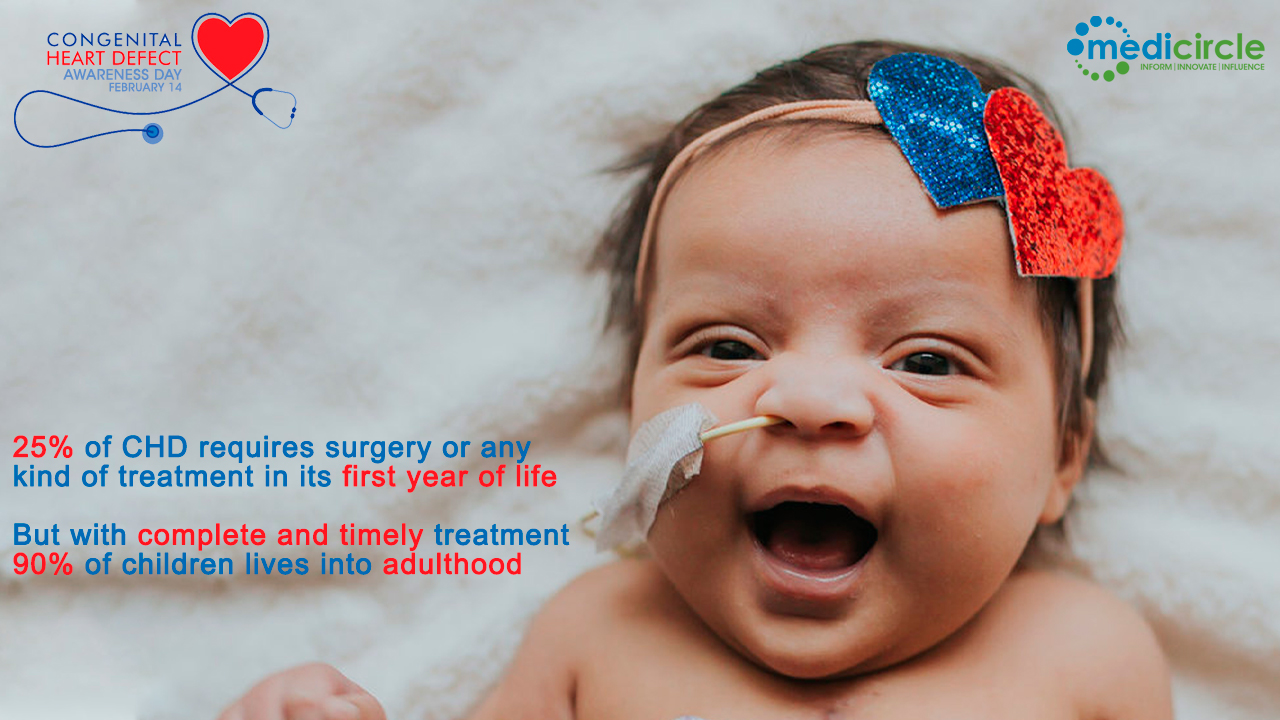Congenital Heart Defects (CHD) are a lethal constellation of birth defects of the heart that affect millions of newborn infants and children worldwide; a killer that claims thousands of lives every year. Eight of every 1000 children born alive (0.8%) will have some form of congenital heart defect. It is related to some defects in the heart.
Congenital Heart Defect (CHD) Awareness Day
14th February is observed as Congenital Heart Defect (CHD) Awareness Day. The day is celebrated with the aim to raise awareness and educate people about congenital heart defects (CHD).
These defects can include- heart valves, interior valves in the heart, and arteries and veins carrying blood to the heart. The reason for these congenital heart defects is still unknown but experts suggest some genetic and environmental factors behind this.
Many of these children have curable conditions. If detected early and opted for timely treatment, children with CHD can live normal productive lives as adults. Early screening and diagnosis are important to prevent further worsening. Neonatologists need to screen babies thoroughly for the presence of CHD if any. Babies with critical CHDs must be treated within one year of age.
Congenital heart defects contribute to about 10% of the infant mortality rate. Late presentation of congenital cardiac defects is primarily because of a lack of health awareness and health facilities.
Red flags of heart defect in children
-
Blueness is an important indicator of heart disease. Blue babies always have a severe form of heart disease.
-
Frequent chest infections like fever, fast breathing, and the indrawing of the chest are some strong features of heart disease in a child.
-
The inability to take mother feed at a single stretch, especially when associated with sweating, is an early manifestation of congenital heart disease.
-
Infants with congenital heart disease have poor weight gain. Feeding problems and frequent chest infections lead to further weight compromise.
-
Symptoms in grown-up children – fast heartbeat, decreased exercise tolerance, early fatigability, episodes of fainting, high BP.
Preventing Congenital Heart Defects
The Centers for Disease Control and Prevention's National Birth Defects Prevention Study has found that women who are obese, have diabetes, or smoke during pregnancy increase their chances of having a baby born with a heart defect. A woman can take a few important steps before and during pregnancy to help prevent congenital heart defects, like a healthy diet, controlling diagnosed diabetes, quitting smoking, and taking folic acid daily. These actions can reduce the risk of having a baby with a congenital heart defect.

 Congenital Heart Defect (CHD) is the most common birth defect. Early detection and timely treatment can make this condition curable with a good long-term prognosis.
Congenital Heart Defect (CHD) is the most common birth defect. Early detection and timely treatment can make this condition curable with a good long-term prognosis.










.jpeg)









.jpeg)





.jpg)


.jpg)



